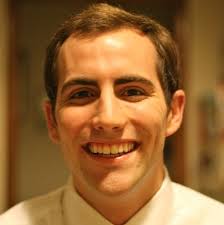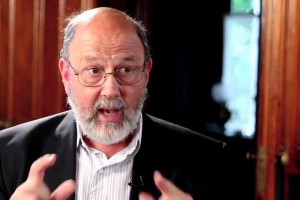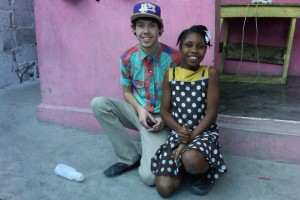So just who is Brother Jake? Well, he’s a member the LDS church, a blogger, and a really nice guy who I’ve had the privilege of chatting back and forth with over emails. But Jake is probably best known for his series of YouTube videos in which he uses wit and humor to satirically defend the LDS positions on a range of “hot” topics. If one watches one of these videos, you’ll immediately realize that Brother Jake is not your ordinary Mormon. A slew of questions could be asked about the style and content of the videos, but I’m more interested in Jake’s personal experiences as an unconventional Mormon, and to give his thoughts about Christian’s who reach out to the LDS.
After reading the interview below, feel free to ask further questions for Jake in the comments of this blog (he’ll be stopping by). Or email him at askbrotherjake@gmail.com
Okay, now to the interview . . .
Brandon: Hey Jake, thanks for taking the time to answer questions about your faith, and about your personal journey and experiences as an “unorthodox” Mormon. Did you grow up as a Latter Day Saint?
Jake: Yes. I come from families of multiple-generation Mormons on my mother and father’s side. I grew up as the youngest of 8 siblings in rural Arizona.
Brandon: What was your relationship with God like growing up?
Jake: My father’s death when I was 9 was a defining moment in my religious life. The doctrine of Christ’s resurrection and eternal families taught within Mormonism became much more personal, and I drew comfort from them. Throughout my adolescence, I did my best to follow the instructions of Church leaders and exemplify the ideals Mormonism instills in its youth. When I turned 19, I served a 2 year proselyting mission in Peru.
Brandon: Could you define what a personal testimony is within the LDS Church? Did you ever receive one?
Jake: For a Mormon, a “testimony” is a feeling of assurance that the Holy Spirit has confirmed the truth of a religious claim to you personally. These confirmations of truth are based on the feelings one has when participating in religious activities, according to the “fruits of the spirit” outlined in Galatians 5:22-23. So, if someone reads the Book of Mormon, for example, and feels the emotions outlined in those verses, then the Holy Spirit is testifying that the Book of Mormon is true; and, by implication, Joseph Smith is a true prophet of God (because how could a true book come from a false prophet?), and the Church restored through him is the one true church of Christ. That’s the idea, anyway.
As for my own personal conviction, I had many positive emotional experiences while participating in Mormonism, from reading Mormon scripture to teaching people about Mormonism in Peru to attending religious meetings. I would definitely say that I received what Mormons view as a testimony that the Church was what it claimed to be–the restored Church of Christ.
Brandon: At some point, you began a journey within your faith towards becoming less traditional in your LDS beliefs. What started that journey?
Jake: My religious views really started to change a couple of years after I returned home from Peru. I served from March of 2007 til March 2009, so I came back in the wake of the 2008 election cycle and the controversy over the LDS Church’s involvement in Prop 8 in California. Up till that point, I would classify myself as staunchly anti-gay. However, with the issue so recently in the public sphere, it was the first time I had to grapple with it as an adult. I spoke a lot about it with my girlfriend (who would later become my wife), who was one of the growing minority of LDS people that disagreed with the Church’s involvement. As I listened to the other side of the issue, I had an increasingly difficult time justifying what had been done. I spoke to the best Mormon legal minds to get some sort of reassurance, but I found their arguments unconvincing. Eventually, I considered a terrible possibility–maybe we were just wrong. Not persecuted or misunderstood, but just flat-out wrong.
For some reason, the idea that the main governing body of the Church made such a misstep made me question the Church’s claimed unique connection to God in general. Over the next couple of years, I started doing more research about the main claims of the Church–the historicity of the Book of Mormon, the nature of Joseph Smith’s “first vision,” Joseph Smith’s prophetic gifts of translation, etc. There is a platitude in Mormon culture about being confronted with troubling information: we’re counseled to take those issues and “put them on the shelf.” The idea behind it is that there are things that are inexplicable at the time being, but the answers will come eventually. So that’s what I did.
The problem is that my shelf broke, and certain aspects of traditional, literal belief became untenable for me.
Brandon: Did you have family, friends or church leaders who you felt you could ask these questions to?
Jake: Yes. I’ve been extremely fortunate to have friends and family members that are open to speaking about these types of issues without becoming condemnatory or angry, and I’ve had many conversations about these topics. In addition, there are entire organizations (FAIR, FARMS) that are totally dedicated to answering these questions from an academic perspective. The main issue I run into is that there are different types of claims that should be examined on their own terms. For example, there are spiritual claims, like “Jesus Christ paid for my sins.” That is a statement that is purely spiritual, and it should be evaluated through spiritual means, i.e. by consulting God for a spiritual confirmation. However, when you say “This record describes a civilization that existed on this continent,” you’re making material claim–one that can be proved or disproved through external evidence. So when I’m asked to pray and ask God if the Nephites really lived in the Americas, I think the types of claims and the types of evidence that would support those claims are getting mixed up. This isn’t a spiritual claim. I wouldn’t pray to ask God if the theory of relativity is true.
I guess what I’m getting at is that I found many of the apologetic answers unsatisfactory.
Brandon: What were, or still are, the most challenging questions for the LDS faith?
Jake: That’s a big question. I would probably divide them in two categories: those that receive resistance from a scientific/academic standpoint, and those that receive resistance from a social standpoint.
Academic/Scientific:
A main tenant of LDS doctrine is the literal historicity of the Book of Mormon. The idea that the civilization described in the Book of Mormon existed in the Americas is one that has been increasingly challenged by archaeology, genetic studies, and linguistics. The results of various DNA studies disproving the claim that the Native Americans descended from Jewish refugees has already caused the Church to change the book’s canonized introduction (from asserting that the Lamanites were the “primary ancestors of the Native Americans” to “among the ancestors of the Native Americans”). The disconnect between the academic and scientific community and LDS claims will continue to grow wider.
The origins of the Book of Abraham. For those unfamiliar with the issue, in 1835 Joseph Smith produced a translation of a set of papyrus scrolls purchased from a travelling exhibition. He claimed these scrolls were written by the biblical Abraham. However, the scrolls were later proved to be a funerary text written centuries after Abraham’s time. I have a video about it, if you’re interested in getting an overview of the issue. (Watch it here)
The Kinderhook Plates: in 1843, two men fabricated metal plates with ancient-looking characters in an attempt to trick Joseph Smith. Joseph Smith attempted to translate these plates, claiming they had been written by a descendant of the Biblical figure Ham. The plates were later revealed to be a hoax.
Historical records that cast doubt on the “official” explanation of things: this includes the process used to translate the Book of Mormon, the varying accounts of Joseph Smith’s “first vision,” and many others.
Social:
The sexist implications of having a male-only preisthood hierarchy, as well as the explicitly and implicitly anti-feminist ideals of family roles and structure.
The racism rampant through the Book of Mormon, as well as the Church-wide policy that no black male could hold the priesthood for nearly a century of Church history–a policy that is backed with dozens of statements justifying the practice made by previous prophets and apostles.
The institution of plural marriage and the dubious circumstances surrounding its implementation.
Brandon: How involved are you in the LDS church now?
Jake: I still attend regularly and teach a Sunday School class. I still get a lot of fulfillment out of participating.
Brandon: What do you feel your place is in the church now?
Jake: My goal is to continue to get fulfillment out of my participation. My ideal of what I want from it is much more “zen” than before, but Mormonism is still deeply rooted in my identity. I’ll always be “Mormon,” even if my definition of what that means has changed.
Brandon: How has your changed view of the LDS church and the LDS scriptures impacted your view of the Bible, Jesus, and God in general?
Jake: It’s much more interesting now. Being able to look at Mormonism through a not strictly spiritual, literal lens has made it fascinating. In a similar way, being able to look at God and Jesus through a more “deconstructed” worldview has made the study of them much more accessible and personal.
Brandon: How do you feel about Christians reaching out to LDS, aka, Jerald and Sandra Tanner, Mormon Research Ministry, Mormons in Transition, etc.
Jake: My hat’s off to them–they’ve picked a tough crowd. I think one thing that would make a Mormon to Christian conversion extremely difficult is the fact that, on a purely quantitative level, the Mormon may feel that he or she is asked to give up a whole lot and is given very little in return. I know that may sound condescending, but here’s what I’m really getting at: the Mormon canon includes the Bible, the Book of Mormon, The Doctrine and Covenants, the Pearl of Great Price, and the doctrine of a living prophet and apostles. In a conversion to mainstream Christianity, he or she gives up almost all of it, and that has to be very difficult. For all its Pharisaical emphasis on ritualistic ordinances and dismissive attitude toward Christ’s grace, Mormonism is quite theologically rich. That isn’t to say that Christianity isn’t; it’s just that, at first glance, the Mormon may feel like almost all his/her core beliefs have to be torn down to make the transition.
Brandon: As this is a blog largely read by a general Christian audience, what advice do you have for those who want to talk to the missionaries at their door?
Jake: Mormon missionaries are mostly just young people low on experience and high on self-importance. It isn’t their fault–they’ve been told dozens of times that they’re a literal representative of Jesus Christ and many have had powerful experiences that confirm that idea to them. The point is that if you’ve got the time, most would be more than willing to have a doctrinal fencing match. But I’d classify the odds of actually convincing them of anything as extremely low. The only advice I’d give is to be kind but very transparent about the fact that you’re not interested in converting to the faith.
Brandon: Thanks Brother Jake for taking the time to answer these questions.
Jake: Thanks! I’d love to answer any additional questions in the comments or via email at askbrotherjake@gmail.com





4 Comments
Leave your reply.